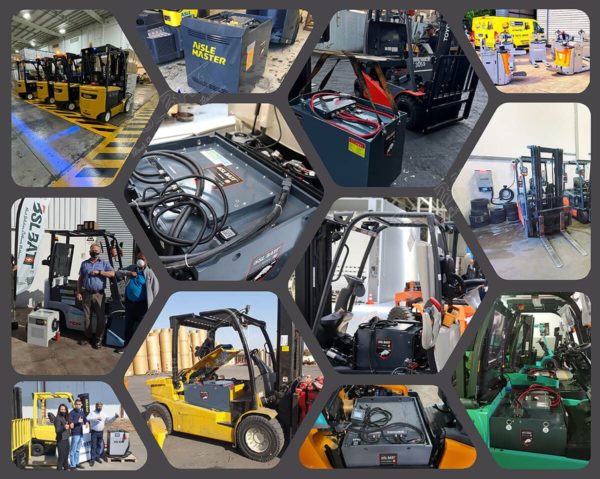
BSLBATT makes gains in forklift lithium batteries
1/6/7F-1 Building1 Zhongkai Innovative Base
Huifeng 6th Road ZhongKai Hi-tech Zone
HuiZhou City, Guangdong, INTL
http://www.lithiumforkliftbattery.com
Following many decades of engineering evolution around the only power-source technology (the lead-acid battery), electric lift trucks and forklifts have finally adopted a new power source: Industrial lithium-ion battery packs. The benefits of lithium solutions are well-known by now — higher performance, less maintenance, and higher ROI. Lithium batteries provide a better return on investment and enable the use of automated guided vehicles and mobile robots (AGVs and AMRs), which rely heavily on durable ”hands-off” lithium batteries.

Maya Xiao
Just how rapidly lithium batteries are taking hold in the lift truck market is something research firm Interact Analysis has studied closely, looking at data from multiple angles, including forklift classes, countries, and regions. The firm’s latest analysis finds that by 2030, 45% of the total forklift market, including combustion engines, will be powered by lithium batteries. Among all electric lift trucks, that share will be about 70%, says Maya Xiao, the senior analyst with Interact heading up the research.
“There are two overall directions the research shows,” says Xiao. “One is that electric power is replacing internal combustion as a power source; and two is that within electric units, there’s an increasing trend from lead-acid batteries toward lithium batteries.”
 The OEMs that make smaller electric units, such as walkie-pallet jacks, will offer nearly all lithium-ion-powered products by the end of the decade. OEMs producing units weighing less than 250 kilograms already are focused on lithium power, explains Xiao, and by 2030, those offerings are expected to be nearly 100% lithium-powered.
The OEMs that make smaller electric units, such as walkie-pallet jacks, will offer nearly all lithium-ion-powered products by the end of the decade. OEMs producing units weighing less than 250 kilograms already are focused on lithium power, explains Xiao, and by 2030, those offerings are expected to be nearly 100% lithium-powered.
“It’s very easy for one order of these smaller forklifts to number into the hundreds at a larger logistics services or e-commerce company,” Xiao says. “Companies will ‘rinse and repeat’ with large orders as they replace older equipment, other companies will see the success, and that will help drive the market.”
Xiao expects a shift toward lithium in Class 2 trucks, which cover narrow aisle equipment, moving toward automated narrow aisle systems with lithium power. When investing in these solutions, the battery price tag is not a huge factor because they’re focused on other aspects like uptime, throughput, and productivity, Xiao points out.
The main areas of appeal for lithium lift truck batteries include low maintenance, high energy density, higher efficiency means more power, and fast opportunity charging during breaks, which when done properly, allows electric forklifts to run without battery swaps. However, lithium has faced some recent bumps, including ongoing supply chain delays this year, and rising costs for materials, since lithium batteries are in high demand in other vehicle segments.
Interact Analysis lowered its lithium growth prediction for the lift truck market recently due to ongoing supply chain and cost concerns, says Xiao. Such concerns have generally led to longer lead times for lift truck buyers, Xiao added that such concerns often lead to longer delivery times for forklift buyers, which in some cases means that forklift manufacturers, as well as forklift dealer companies, look for high-quality forklift lithium battery manufacturers in the Chinese market, Instead of waiting for the original forklift manufacturer to provide.
On this blog, BSLBATT compiled the 10 Best Lithium Forklift Battery Brands and Manufacturers (Comprehensive List and Reviews) Learn about the company history and what batteries each company offers.









